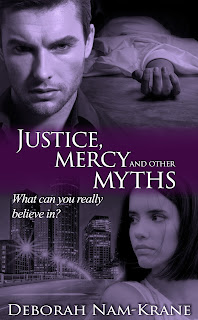I deleted my Facebook account this week. I bragged (somewhere) about doing that before, but I did keep a shadow account so I could maintain a Facebook author page. Finally, after a few years of FB making it harder and harder for anyone to see my posts there, I decided it wasn't worth it. So I deleted my page and I deleted my personal account, which had all of 30 friends on it.
And it feels so good.
A day before that I deleted my Instagram (I'd been on for less than a year), Tumblr, and Pinterest accounts. At some point all of them became primarily vehicles for ads (or sponsored posts), and everything they told us about how to tweak our preferences so we only saw the things we'd be interested in was a lie (at least it was for me). I like visual inspiration as much as the next person, but not enough to tolerate what passes for social media now.
I got rid of my Twitter account a while ago, but in that case it wasn't because they were selling to me as it was that it only wanted to show me the most extreme content that was sure to get more of a reaction (or rise) out of me. You know what the world looks like when you're surrounded by those kinds of posts and opinions? It's a scary place, and darker than I could let my web get.
I'm still on LinkedIn, but frankly I'm not going to need much of an excuse to get off of that, either. Of all of the platforms, it's the most disappointing. That's the place where I should find the most useful information, not memes, inspirational posts, or ads (no matter how business focused they are). I thought it was a problem with the contacts I had, but after culling almost 30% of them I'm still seeing updates that have no relevance to me or anything I'm interested in.
I'm also still on Goodreads, but only because I fell in with a community of local writers I really enjoy who want to use that as our primary forum. But I'm no longer telling Goodreads what books I've read or want to read, and I've whittled my list of contacts there as well. There's sooo many ads there, too, plus they keep trying to send me to Amazon to buy things.
And speaking of Amazon: I'm not posting book reviews there unless someone has a really, really good reason for me to do so. I've been reviewing there for almost two decades, but in the last two years it's become so much more trouble than it's worth. I understand why they felt they needed to privilege the reviewers who bought their items, but I'm not going to buy something I read from a library just to have the pleasure of seeing my review on Amazon's site. Right now, if you want to see my reviews, please check out my profile on the Boston Public Library website. It's not as sexy, but I'm enough of a library geek that I still get a thrill out of having any kind of presence there at all.
I was nervous about writing this because I didn't want to come off as a retrogressive Luddite (again…), but I shouldn't have been. Disconnecting is a thing.
 |
| This is what I'm saying! |
The true genesis for me was The Life Changing Magic of Tidying Up. It doesn't take much tidying in the real world to force you to realize that you're not deriving nearly as much joy from your time-consuming online life as you should be.
But I started to feel that I needed to take action when I heard about this study earlier this fall. In short, just having your smartphone in the room with you, even if you can't touch it, is distracting enough that it affects your ability to solve problems. Then I saw this video. You don't have to be a millennial in order to be affected by your smartphone (or social media). Since watching this, I started keeping my phone in another room while I sleep--and now I. Sleep. So. Well.
Even at my peak social popularity, I never achieved the kind of fame that exposes so many people to the kind of abuse Jack Monroe describes here. Her solution is perhaps the cleverest still: downgrade the phone so it's impossible to be constantly barraged by social media (and abusive messages). Life goal now: go get a flip phone (if they still sell them).
But it was the last post that confirmed for me that I'm not an outlier. It's not that Nathan Bransford is an authority on lifestyle trends; he's actually an author and publishing professional. I came across his blog as I was going through recommendations from my blog feeder and saw his post on disconnecting.
Serendipity? Universal truth? Something in between? I can't say, but my calendar and my life have opened up as I've pulled back. I’m participating in National Novel Writing Month (aka NaNoWriMo) and I’ve written over 12,000 words so far. My home is cleaner, and I’m reading so much more than I have in months. And I’m excited about things again—like blogging. So expect to hear a lot more from me in the coming months.
I’m not recommending that everyone disconnect to the extent that I have, and as Monroe points out in her post, for some people social media and smartphones are the only way they’re going to have contact with the people. But I am going to say that if you’ve been feeling like everything is just too much, it’s okay to play with letting go of them.







